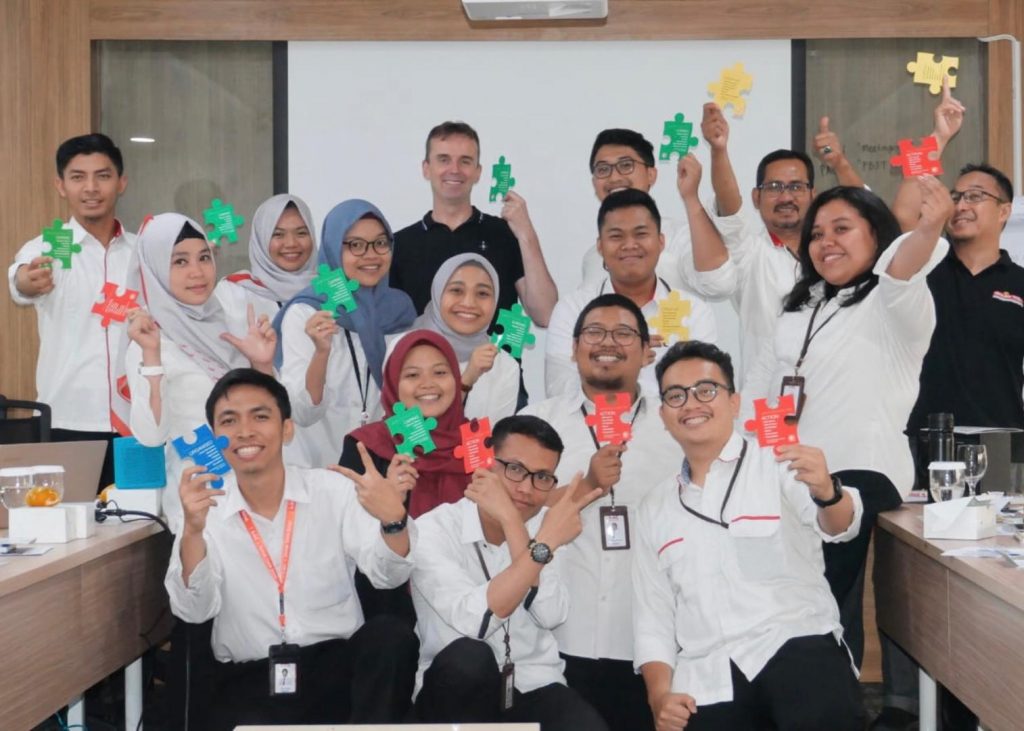The Great Reset

This isn’t a conspiracy
Post “The Great Reset” on social media and you’ll likely invite responses from people interested in conspiracies surrounding the pandemic—particularly the theory that the coronavirus crisis is the catalyst to a huge overhaul of society, planned by the world’s elite.
The context in which I’m using the term refers to what’s happening in the workplace. This isn’t a conspiracy, it’s actually a stark warning of what’s unfolding within companies around the UK and beyond. There are already signs that the ‘old way of doing things is part of the reason there are severe staff shortages in some areas and distribution issues in others.
In many businesses, there’s a sense of unrest and buckets of miscommunication and misunderstandings between employer and employee.
Look at it from the employee’s point of view. One minute, their employers insist that they’ve to quickly adapt to remote working and learn to be productive under their own steam. Once they’ve mastered this and found that they actually quite like working in that way, employers are suddenly against such flexibility and demand they return to the office. How can they trust their employer after that? How hard must it be for them to not feel like a typing monkey? How do they motivate themselves to produce their best work when the company they work for sees them as dispensable, interchangeable and simply a means to an end?
Key workers and those with front-facing roles, whilst they won’t have worked from home over the past year and a half, will have still seen massive changes in their sectors—changes in service delivery and processes and changes to opening hours, for example. They may feel that their career doesn’t work for them in the way it once did, and they may wonder why they don’t have a job that allows them to watch Loose Women whilst eating a wholesome, homecooked lunch, or one where they can easily incorporate a gym session or long walk around their work tasks.

After years of being told remote working couldn’t work in a team environment without a detrimental effect on productivity, the pandemic has shown it can. It’s no surprise that a significant portion of the working population want to continue on this basis.
And why wouldn’t they? No commute and the autonomy to decide their day. The freedom to do the school run without scurrying out of the office, the freedom to walk the dog when the sun is out, the freedom to concentrate on their work without distraction from colleagues, or a manager breathing down their neck or endless in-person meetings.
Resilience is fueling the changes
The resilience shown by the entire population as a result of the crisis is fuelling the changes we’re seeing. Though it’s not fully over, we’re much better equipped to work round the virus and the risk of contagion. Yes, some businesses went to the wall in the process, but the majority found ways to adapt and even thrive in the worst of circumstances. The entire experience has seen a lot of people have a good, long look at their lives. For some, it’s proved a wake-up call.
Take a look at any recruitment agency’s website or visit Indeed and you will find plenty of jobs, despite the high rate of unemployment. Not all of these vacancies are on the front line, many of them are ‘cushy’ office jobs and middle management roles, and many are becoming hard to fill.
The pandemic aside, technology has also changed the face of how we work. The Monday-Friday 9-5 is a rarity nowadays; tech has allowed us to work when we want to, where we want to. Rather than living to work, people nowadays very much work to live. In 2021, our careers form just a small part of our lives. On a holistic level, work makes up a part of our week, but it’s not the dominant element it once was. We can be fulfilled, and we can progress in our jobs, but we now place as much importance on being fulfilled and progressing in our hobbies and pastimes, our life’s achievements, in our parenting and in our relationships.
The current opportunity that faces employers
The Great Reset in this regard refers to the current opportunity that faces employers, leaders and managers. There is no ‘normal’ to go back to, too much has changed. It’s a chance to forget all that has gone before and start from scratch. To design a new culture, new workplaces, new ways to afford flexibility to all employees (and this doesn’t have to equal working from home, flexibility can come in many guises); new understandings, a new respect for your employees—because you need them as much as they need you. The respect, loyalty, commitment and motivation you will receive back will be more than worth it.
There has never been a better time.
People have oodles of resilience and will adapt to all the changes you make. They’ve done it once, have faith in them. Make the effort to listen to them, understand and empathise with their individual situation and experiences.
Because that’s the crux. The workforce has changed so much, it’s difficult to meet employees’ expectations when you’ve lost sight of them as people, and as a collective. Adopting a one-size-fits-all style of management or leadership won’t cut it today, as we all strive to celebrate our individuality.

Leaders need to adapt
Leaders need to adopt greater resilience and bend to the changes. They need to learn how to inspire and motivate a blended workforce—in which some employees may be sat at the next desk and some in the next town.
Understanding its people will be the biggest, most lucrative investment any company could make at the moment. To learn about each employee as an individual rather than seeing ‘the team’ as a collective mass. To gain a deeper understanding of human behaviours and where best to place the people on your team so that their strengths are recognised and exercised. To observe how they react to each other.
Understanding its people will be the biggest, most lucrative investment any company could make at the moment. To learn about each employee as an individual rather than seeing ‘the team’ as a collective mass. To gain a deeper understanding of human behaviours and where best to place the people on your team so that their strengths are recognised and exercised, enabling them to perform at the top of their game.
The Jigsaw Discovery Tool uses neuroscience, personality measures and behavioural patterns to form an analysis of an individual—their strengths and weaknesses, their motivators and demotivators, their preferences and the ways they approach things.
Jigsaw Discovery helps leaders to ask the best questions. The ones that will solve problems with insight, informing them of what actions to take, because Jigsaw Discovery enriches their understanding so that they will understand what the implications will be as their team starts to adjust to working in the new world.
The Great Reset is the perfect time to reassess, to modernise, to remodel. To go back to basics. To create a workforce and culture fit for this point in our nation’s history.
If you would like to speak with one of our team, book a free consultation
Give us a shout, if you want to know more about how your leaders can get the best from their teams, as we start to build better workplaces





[…] talked recently about a huge reset in the workplace. The changes we’re seeing have been on the cards for quite a while—driven by advances in […]